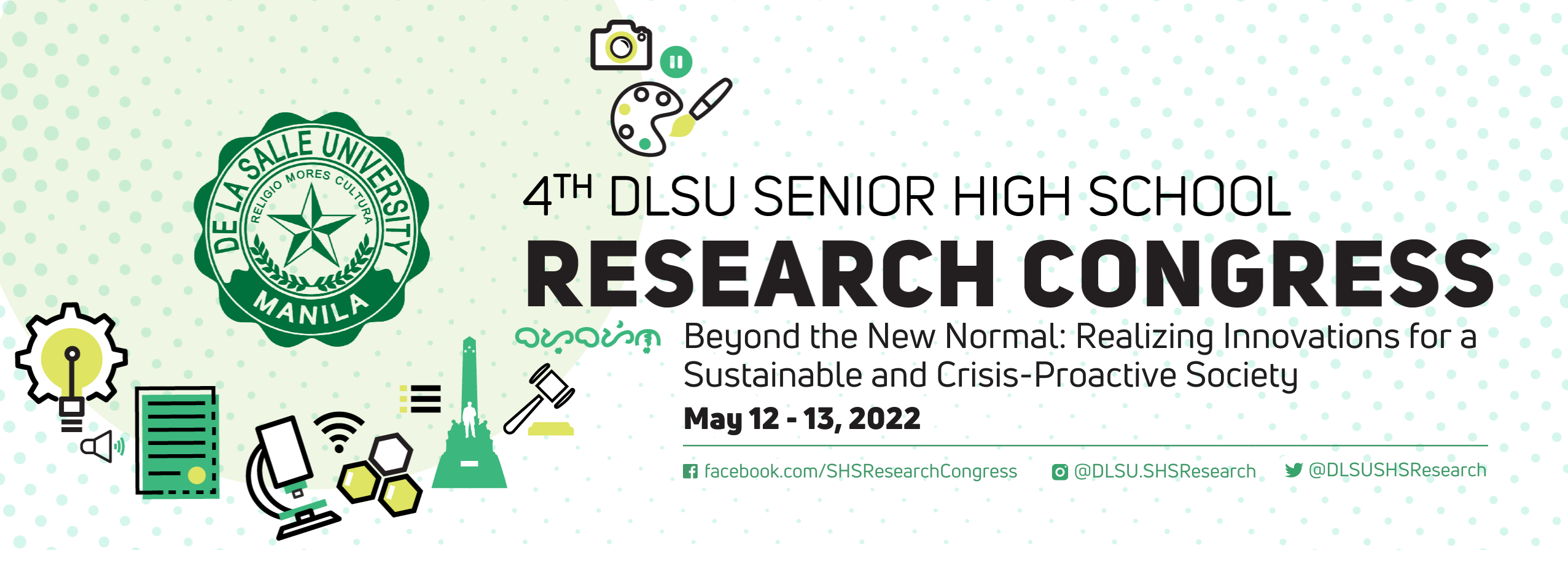Document Types
Paper Presentation
Research Theme (for Paper Presentation and Poster Presentation submissions only)
Food, Nutrition, and Health (FNH)
Research Advisor (Last Name, First Name, Middle Initial)
Angelo M. Alberto
Start Date
12-5-2022 1:00 PM
End Date
12-5-2022 3:00 PM
Abstract/Executive Summary
Medical researchers worldwide have been called to duty during the Coronavirus disease-2019 (COVID-19) pandemic to develop effective vaccines. However, the dissemination of information and its resulting perceptions have incurred hesitation among Filipinos. Although there have been numerous studies on vaccine perceptions (VP) and how social media plays a role, there is a lack of investigation within a certain demographic, particularly the youth. As such, this study investigated the level of COVID-19 vaccine acceptance among ID 120 and ID 121 senior high school students from De La Salle University - Integrated School (DLSU-IS) Manila due to social media exposure (SME) and COVID-19 VP by determining possible factors using multiple logistic regression modeling. Additionally, social media analytics (SMA) was conducted to retrieve COVID-19 VP of users whose Tweets were posted in the National Capital Region (NCR), which then underwent sentiment analysis. While there was no significant factor in terms of SME, perceived government inadequacy was found to be a significant factor for COVID-19 VP in the survey and a prevalent occurrence for SMA. Thus, it is essential that the government improve vaccine distribution methods and service quality to combat these negative perceptions and increase overall acceptance.
Keywords
Coronavirus disease-2019 (COVID-19); vaccine acceptance; vaccine acceptance factors; statistical modeling; social media analytics (SMA)
Statistical Modeling of COVID-19 Vaccine Acceptance among ID 120 and ID 121 Senior High School Students of De La Salle University - Integrated School Manila
Medical researchers worldwide have been called to duty during the Coronavirus disease-2019 (COVID-19) pandemic to develop effective vaccines. However, the dissemination of information and its resulting perceptions have incurred hesitation among Filipinos. Although there have been numerous studies on vaccine perceptions (VP) and how social media plays a role, there is a lack of investigation within a certain demographic, particularly the youth. As such, this study investigated the level of COVID-19 vaccine acceptance among ID 120 and ID 121 senior high school students from De La Salle University - Integrated School (DLSU-IS) Manila due to social media exposure (SME) and COVID-19 VP by determining possible factors using multiple logistic regression modeling. Additionally, social media analytics (SMA) was conducted to retrieve COVID-19 VP of users whose Tweets were posted in the National Capital Region (NCR), which then underwent sentiment analysis. While there was no significant factor in terms of SME, perceived government inadequacy was found to be a significant factor for COVID-19 VP in the survey and a prevalent occurrence for SMA. Thus, it is essential that the government improve vaccine distribution methods and service quality to combat these negative perceptions and increase overall acceptance.


